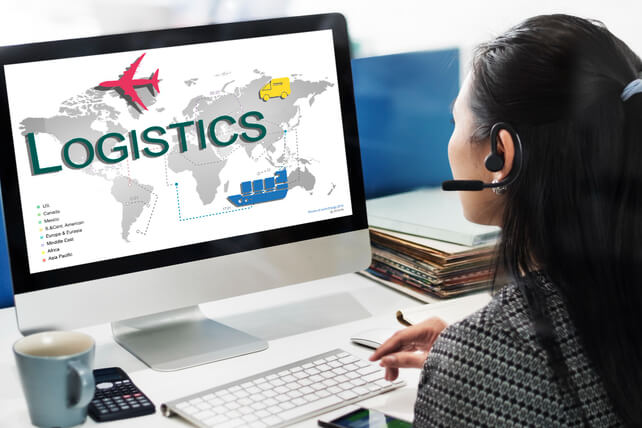In the fast-paced world of logistics, managing human resources efficiently is crucial to maintaining operational flow, meeting deadlines, and retaining skilled labor. From scheduling drivers and warehouse staff to managing compliance and payroll across multiple locations, the logistics industry demands HR tools that are flexible, scalable, and powerful.
Here are the 10 best HR software solutions in 2025 that help logistics companies streamline their HR operations, enhance employee engagement, and stay compliant.
1. BambooHR
Overview:
BambooHR is a user-friendly HR platform built for growing companies, including those in the logistics and transportation sector. It simplifies employee data management while offering robust tools for onboarding, performance tracking, and time-off management.
Why It’s Great for Logistics:
Logistics companies can benefit from BambooHR’s centralized employee database, mobile accessibility, and customizable workflows. Its applicant tracking system (ATS) and onboarding tools make hiring and integrating new staff faster, even across remote or distributed teams. Time tracking and PTO management ensure that shift workers and field employees are accurately monitored and compensated.
2. Deel
Overview:
Deel is a global HR and payroll platform designed to help logistics companies hire, manage, and pay employees or contractors across borders. With built-in compliance, automated onboarding, and support for 150+ countries, Deel is ideal for logistics providers managing distributed or international workforces.
Why It’s Great for Logistics:
Logistics companies often operate across multiple geographies and rely on contract-based or shift workers. Deel simplifies onboarding at scale, ensures local labor law compliance, and enables fast, accurate payroll processing—no matter the location. Features like on-demand pay and global expense cards provide added flexibility for mobile teams and warehouse staff, while its centralized HRIS supports better coordination across global hubs.
Best For:
Logistics providers with international operations or mobile workforces seeking a scalable, compliant HR solution for fast-moving environments.
3. ADP Workforce Now
Overview:
ADP Workforce Now is a robust HR and payroll platform designed for mid-sized and enterprise-level companies. It offers scalable solutions that grow with your business.
Why It’s Great for Logistics:
Logistics companies often deal with complex payroll, compliance with local labor laws, and large-scale workforce scheduling—ADP handles it all. The platform includes modules for recruiting, performance management, time tracking, and benefits. It’s also known for its powerful reporting tools, which are helpful for HR compliance audits.
4. Paycor
Overview:
Paycor offers a modern HR platform tailored to businesses seeking automation and data-driven decision-making. It provides solutions for payroll, time tracking, hiring, and employee engagement.
Why It’s Great for Logistics:
Paycor’s scheduling tools allow dispatch managers to assign shifts quickly and ensure 24/7 logistics operations continue seamlessly. It also supports mobile clock-in/out, which is useful for field employees and truck drivers. Detailed workforce insights help improve labor forecasting and optimize staffing levels.
5. Rippling
Overview:
Rippling is a unified workforce management platform that merges HR, IT, and finance into a single system. It’s a flexible option that caters to modern logistics businesses managing both desk and field employees.
Why It’s Great for Logistics:
With Rippling, you can onboard new hires in minutes, set up device access for remote logistics coordinators, and manage payroll across multiple states or countries. The automation engine helps reduce manual HR tasks like timesheet approvals, PTO requests, and compliance alerts.
6. UKG Pro
Overview:
UKG Pro (formerly UltiPro) offers a comprehensive suite of HR, payroll, and talent management tools ideal for large logistics operations with complex workforce needs.
Why It’s Great for Logistics:
UKG Pro excels at handling union rules, shift differentials, and time-sensitive payroll processing. The software provides predictive analytics for workforce planning and includes compliance tracking—important for businesses dealing with DOT regulations and safety requirements. The integrated mobile app allows real-time communication between drivers and HR.
7. Gusto
Overview:
Gusto is an all-in-one payroll and HR platform designed for small to mid-sized businesses. It combines payroll, benefits, and compliance in an intuitive interface.
Why It’s Great for Logistics:
For logistics firms with a lean HR team, Gusto automates payroll tax filings, tracks work hours, and simplifies onboarding. Its affordability, ease of use, and ability to manage hourly employees make it especially suitable for small distribution centers, last-mile delivery startups, and regional transportation companies.
8. Zoho People
Overview:
Zoho People is a cloud-based HR software solution that covers essential functions such as attendance, leave, performance, and case management.
Why It’s Great for Logistics:
It’s ideal for logistics businesses operating with multi-location teams. You can track attendance via geolocation or biometric integrations, automate shift scheduling, and use performance tracking tools to evaluate warehouse staff and delivery teams. The software is also customizable to accommodate logistics-specific HR workflows.
9. Ceridian Dayforce
Overview:
Dayforce by Ceridian is a comprehensive human capital management solution that includes payroll, benefits, talent management, and workforce planning tools.
Why It’s Great for Logistics:
Its real-time data engine allows logistics companies to make informed staffing decisions quickly. You can dynamically schedule shifts based on demand forecasts, monitor employee fatigue, and manage compliance with safety protocols and labor laws. The mobile-friendly interface is perfect for on-the-go operations.
10. SAP SuccessFactors
Overview:
SAP SuccessFactors is an enterprise-grade HR platform designed for complex, global organizations. It offers modules for core HR, talent acquisition, learning management, and more.
Why It’s Great for Logistics:
Large logistics providers with international operations can benefit from SuccessFactors’ multi-language, multi-currency capabilities. The software supports comprehensive training programs for safety and compliance, ideal for managing a global fleet. AI-driven analytics help HR teams predict turnover and manage talent pipelines effectively.
Key Features to Look for in Logistics HR Software
When evaluating HR software for your logistics company, consider the following must-have features:
- Shift Scheduling & Time Tracking: Ensure the software can handle rotating shifts, breaks, and overtime.
- Mobile Accessibility: Employees on the road or in warehouses need mobile-friendly solutions.
- Payroll & Compliance: Look for tools that handle complex payroll calculations and comply with federal and local labor laws.
- Employee Onboarding: Fast onboarding is critical in high-turnover environments like logistics.
- Workforce Analytics: Data insights help HR and operations teams forecast labor needs and reduce costs.
- Integration Capabilities: Seamless integration with other systems like TMS (Transportation Management Systems), ERP, or accounting software enhances operational efficiency.
Final Thoughts
The logistics industry runs on speed, coordination, and reliability—and your HR operations should be no different. The right HR software can help logistics businesses streamline hiring, scheduling, compliance, and employee engagement, even under demanding conditions.
Whether you’re a small regional fleet or a global logistics provider, the solutions on this list offer the flexibility, scalability, and industry-specific features needed to thrive in 2025 and beyond. Evaluate your team’s needs, scalability requirements, and integration priorities to select the HR platform that’s the perfect fit for your logistics operations.














